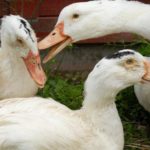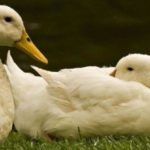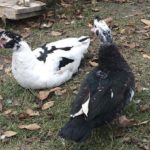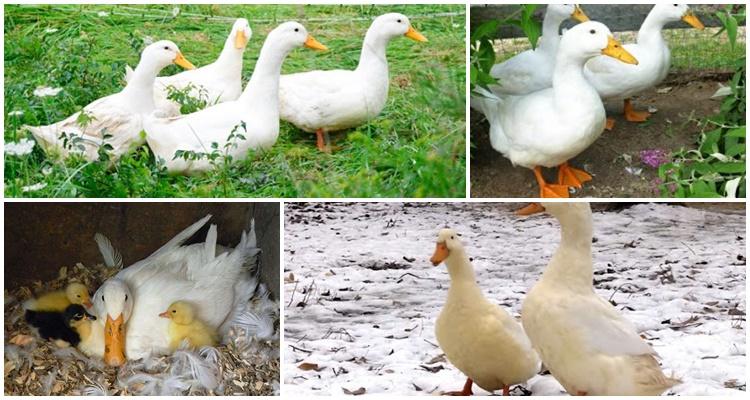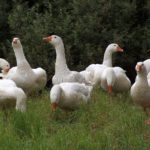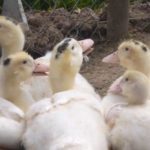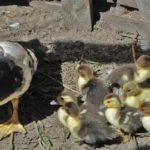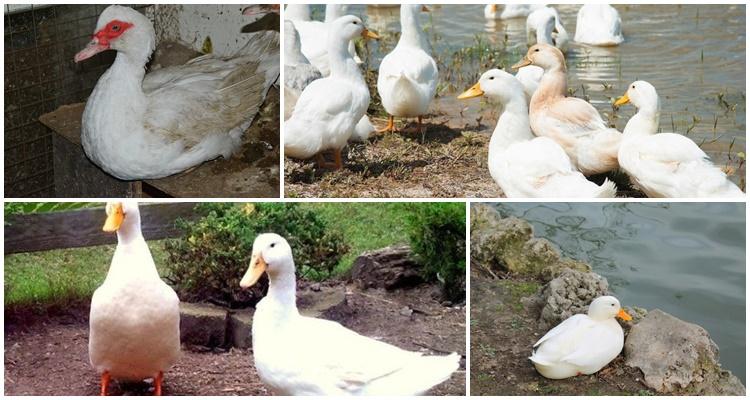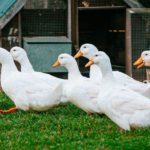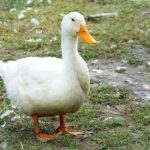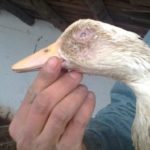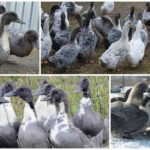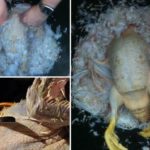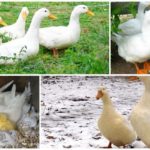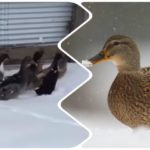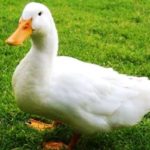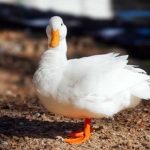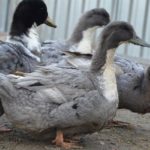When breeding ducks, it is important to take into account all the features of keeping these birds. Sometimes farmers face various violations. Experienced poultry keepers often notice that adults and small ducklings tend to pluck each other's feathers. This causes serious damage. To cope with the violation, you need to understand why ducks pinch each other.
- Why do ducks peck each other?
- Ways to resolve duck conflicts
- Changing your diet
- We identify and remove the aggressor
- We provide good access to drinking bowls and feeders
- Changing the lighting in the poultry house
- Maintaining the humidity level in the room
- Possible complications
- How to prevent a problem from occurring
Why do ducks peck each other?
Feather picking is common among poultry.Not only ducks do this, but also chickens or turkeys. However, ducklings especially often pluck feathers. This is due to the free range of grown ducklings. They are released to pasture at 2 months. Adults are not too happy with babies. This is due to competition among birds. That’s why ducks often pinch or even eat ducklings.
The foolish young birds follow the example of the adult birds and also begin to pluck feathers. This causes fights or aggression. The following factors lead to unusual behavior and the appearance of cannibalism in ducks:
- eating disorders or lack of water;
- excess food;
- small paddock;
- changing nutritional needs of ducks;
- shortage of feeders or water containers;
- the presence of aggressive birds in the flock.
Ways to resolve duck conflicts
There are many options for resolving conflict situations between birds. First of all, it is worth changing their diet.
Changing your diet
That mulards peck at each other due to poor nutrition. This applies to other breeds as well. To cope with the violation, it is recommended to follow the following rules:
- Add useful additives to the food. These include arginine, cystine, methionine. Ducks also require sulfur or calcium. With enough of these substances, ducks will not pluck feathers. In addition, useful elements help feathers grow on affected areas of the body. Sulfur also normalizes metabolic processes and accelerates weight gain. It should be in the diet starting from 2 weeks.
- Introduce feed that contains iron and copper sulfates. Ducks also require sodium selenite, Biovetin, and citric acid. In addition, they need to be given cobalt chloride.
- Give meal to the birds. Ducks need flax, sunflower, and soybean cakes.
- Give the ducks fresh fish. To feed birds, it is permissible to use capelin or sprat.It is also allowed to use meat and bone meal or chopped minced meat for feeding. To get rid of problems, it is recommended to give 1 individual at least 50 grams of fat per week.
- Introduce milk into your diet. It is also permissible to give milk waste to birds.
- If there is a pond nearby, you should definitely take the ducks out to swim. When a problem arises, small shells or duckweed are an excellent food option.
- It is useful to give the birds fresh herbs and grass meal. Ducks also need chopped pine or spruce needles.
- Ducks require crushed chalk. If birds pluck each other's feathers, it is recommended to increase the daily amount of table salt.
- In order to reduce the cost of maintenance, approximately 40% of cereal feed should be replaced with a simple mixture consisting of greens, boiled potatoes, and bread. Among the greens, it is useful to give ducks beet tops, nettles, cabbage, and dandelion leaves.
We identify and remove the aggressor
If you find an individual that plucks other ducks until they bleed, it is recommended to catch it and place it separately. After isolating an aggressive bird, it is recommended to feed it properly and control its behavior. Usually a balanced diet helps to completely solve the problem. Only after the signs of aggression have been eliminated is it permissible to return the duck to its place.
We provide good access to drinking bowls and feeders
If pecking of birds is observed, it is worth inspecting the yard. Sometimes the cause of problems is the incorrect calculation of the number of feeders and drinkers. This provokes fights between birds. If such problems are identified, it is worth increasing the number of access points to food and water and trying to make them as comfortable as possible.
Changing the lighting in the poultry house
In winter, birds quite often peck at each other due to improper organization of daylight hours. There are many indicators that should be taken into account when creating lighting in a poultry house.
The brightness of the lighting is of great importance. Normally it should be 15 lux. To do this, it is enough to use several light bulbs with a power of 40-60 watts. They should be distributed evenly around the entire perimeter of the poultry house.
Maintaining the humidity level in the room
When breeding ducks, it is worth considering that they are waterfowl that are sensitive to any changes in humidity parameters. At the same time, birds can hardly tolerate changes in humidity. This causes condensation to appear on their feathers.
To maintain the required humidity parameters at home, it is worth placing a hygrometer in the poultry house. Depending on its parameters, different methods can be used. So, it is permissible to place a gas boiler or stove-stove in the room, which will remove excess moisture. If the indicators are insufficient, on the contrary, it is recommended to use a humidifier. In winter, humidity parameters should always be 50-60%, and the air temperature cannot fall below +5-7 degrees.
Possible complications
If Muscovy or other species of ducks pull each other's feathers, this can lead to negative consequences. When the wings or body are pecked, dangerous wounds appear, which provokes cannibalism in the herd.
As the blood is released, the ducks peck at the wounds more and more.This provokes severe blood loss or infection. As a result, the risk of bird death is high.
How to prevent a problem from occurring
To prevent such problems, it is recommended to adhere to the standards for keeping and feeding birds. If the number of nests is not enough, it is worth making additional ones. This will help avoid conflict situations. The most aggressive birds should be separated. It is not recommended to change the conditions of keeping or walking areas of birds. This must be done gradually, taking into account the wishes of the birds.
If ducks are constantly biting themselves, it is important to keep the area clean. This will help prevent contamination and infection from entering damaged areas. It is recommended to do general cleaning of the premises weekly, wash the floor every day, and clean the feeders and drinkers. If dirt gets into the water, it needs to be replaced. Food and water should be at room temperature. It is worth taking your birds to the veterinarian from time to time. Preventative examinations are recommended to be performed at intervals of 6-12 months.
Ducks nibble each other for a variety of reasons. Provoking factors for problems include poor nutrition and violation of living conditions. To cope with the violation, it is worth adjusting the rules for caring for birds.

